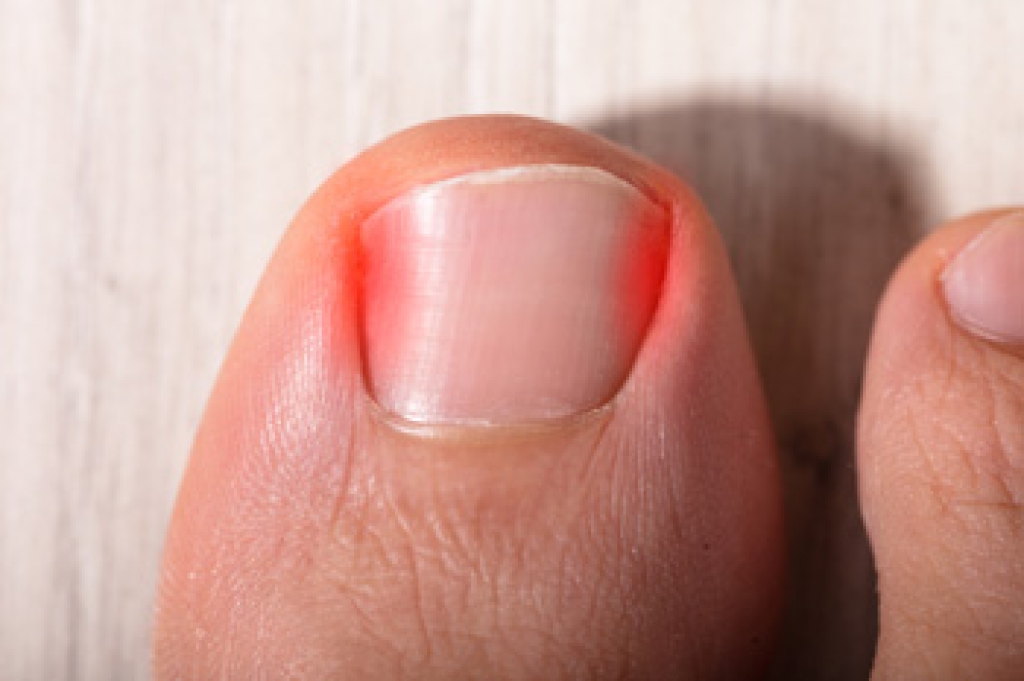
Ingrown toenails occur when the edges or corners of a toenail grow into the surrounding skin, leading to pain and potential infection. Several factors contribute to the development of ingrown toenails, including improper nail trimming, wearing tight or ill-fitting shoes that compress the toes, and hereditary predispositions. Additionally, injuries or trauma to the toe can increase the likelihood of ingrown nails. Preventing this discomfort begins with adopting careful nail cutting practices, which is defined as trimming the nails straight across and avoiding rounded edges. Wearing shoes with adequate toe room and opting for breathable, moisture-wicking socks helps maintain optimal foot hygiene. Individuals with recurring ingrown toenails may benefit from consulting a podiatrist, who can provide guidance on proper foot care. If you have developed this ailment, it is strongly suggested to speak to this type of doctor who can determine what the best treatment method is for you.
Ingrown toenails may initially present themselves as a minor discomfort, but they may progress into an infection in the skin without proper treatment. For more information about ingrown toenails, contact one of our podiatrists of ABC Podiatry. Our doctors can provide the care you need to keep you pain-free and on your feet.
Ingrown Toenails
Ingrown toenails are caused when the corner or side of a toenail grows into the soft flesh surrounding it. They often result in redness, swelling, pain, and in some cases, infection. This condition typically affects the big toe and may recur if it is not treated properly.
Causes
- Improper toenail trimming
- Genetics
- Improper shoe fitting
- Injury from pedicures or nail picking
- Abnormal gait
- Poor hygiene
You are more likely to develop an ingrown toenail if you are obese, have diabetes, arthritis, or have any fungal infection in your nails. Additionally, people who have foot or toe deformities are at a higher risk of developing an ingrown toenail.
Symptoms
Some symptoms of ingrown toenails are redness, swelling, and pain. In rare cases, there may be a yellowish drainage coming from the nail.
Treatment
Ignoring an ingrown toenail can have serious complications. Infections of the nail border can progress to a deeper soft-tissue infection, which can then turn into a bone infection. You should always speak with your podiatrist if you suspect you have an ingrown toenail, especially if you have diabetes or poor circulation.
If you have any questions, please feel free to contact our office located in Columbus, OH . We offer the newest diagnostic and treatment technologies for all your foot care needs.




